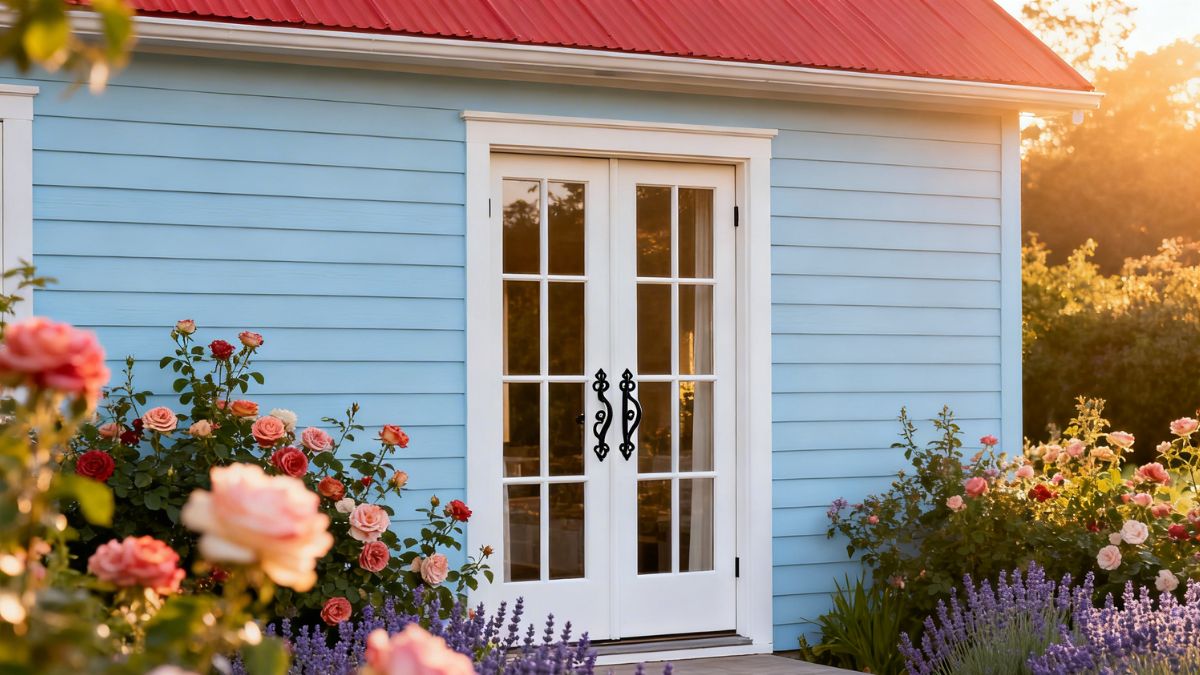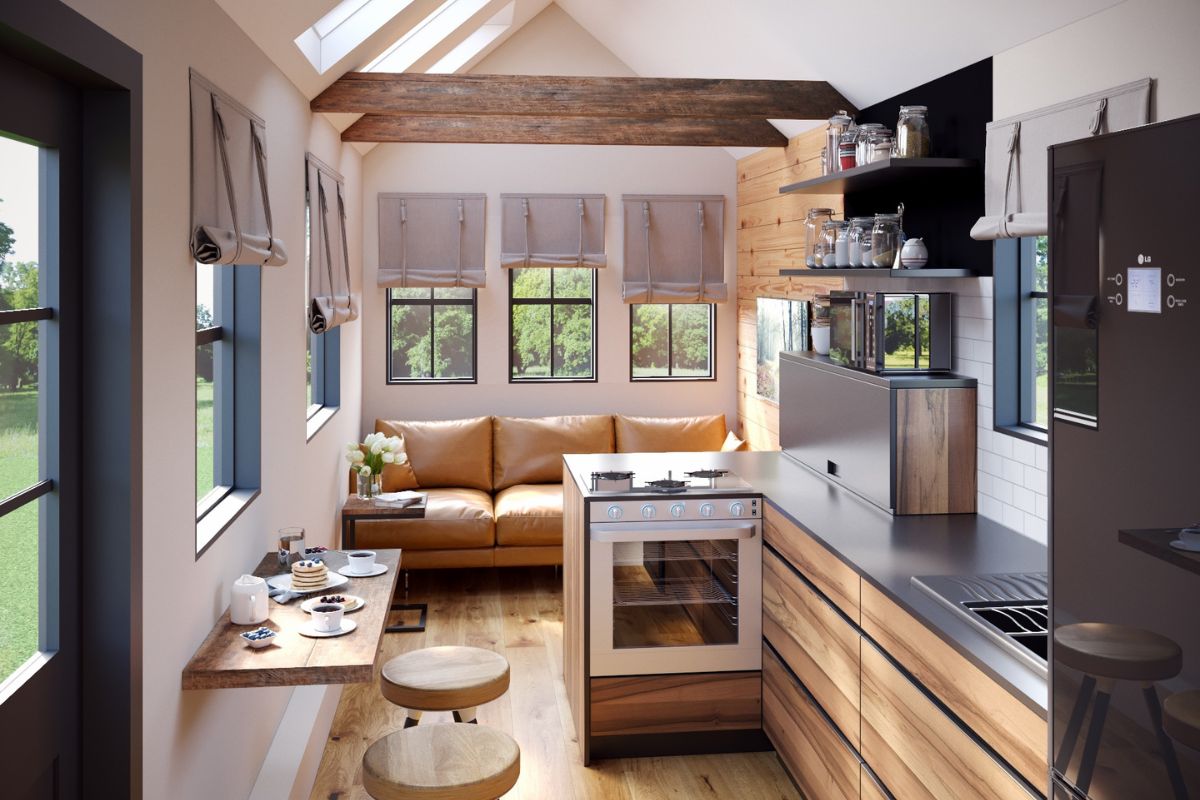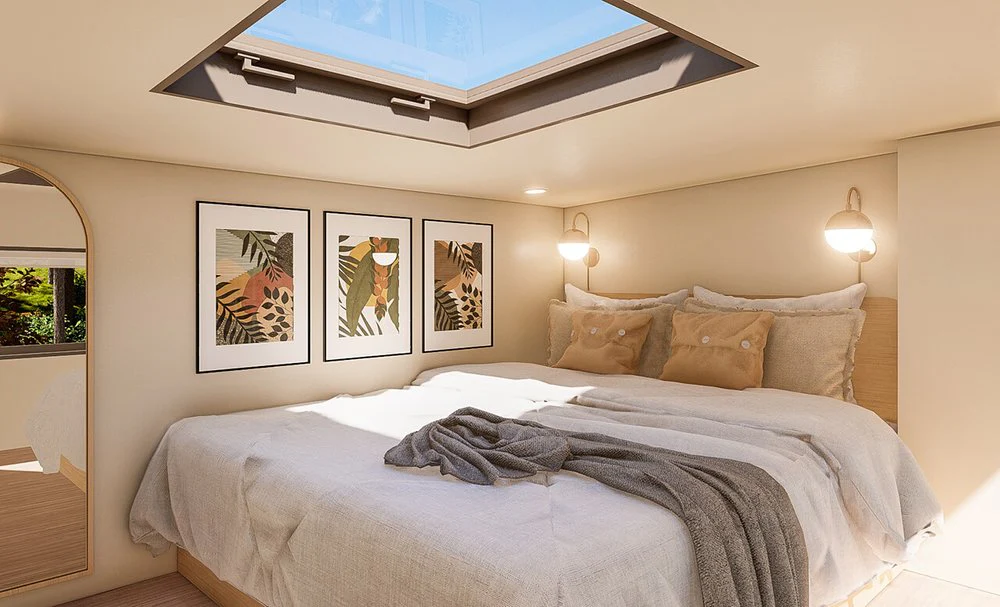The Impact Of Space On Study Performance

Photo by Andrew Ly on Unsplash
Tiny houses may not always have a negative impact on study performance. Scientifically, it is proven that people need open spaces to learn effectively. However, studying can also be productive in a small house. The key to success in your studies is to learn how to optimize your space. What is the impact of tiny houses on a student’s performance?
The compact environment of a tiny house necessitates a different approach to studying and writing. Students in tiny houses often need help with academic tasks, and this can be a perfect opportunity to utilize an online dissertation assistant or writing service, which provides tailored support for optimizing limited study spaces. Services for dissertation help online offer tailored strategies and resources that align with the constraints of smaller living spaces. They provide vital assistance in overcoming spatial limitations, ensuring that a student's academic performance is not compromised by their living conditions.
Before choosing how to study in a tiny house, you should learn more about the options available.
- Space affects focus and productivity.
- Customize study areas for efficiency.
- Light and layout impact mood and retention.
- Organize for clearer thinking.
- Optimal spaces foster learning.
Solutions To Study Effectively In A Tiny House
Making the most of every inch is crucial when you live in a tiny house and need to study. Think about adding wall-mounted shelves or workstations that fold up simply for storage. Hence, you may take advantage of spaces that are sometimes disregarded. For example, you may use corner desks and ladder-style shelves to create a dedicated area for studies without giving up a lot of floor space.
Different surfaces to study
If you do not have a desk, think about using a lap desk or any other surface you have access to, such as kitchen countertops. You should locate a level area that is comfortable to be in and has enough room for your study supplies.
For better posture, use pillows
Avoid putting your book down and stooping over to read if you read on the floor. You will strain the muscles in your neck and back by holding this position. As an alternative, arrange some pillows on the ground and lie down in a comfortable position. You will feel a lot more at ease and be able to read for extended periods of time.
Short-term study areas
Create makeshift study areas in your tiny home, such as a new table. As much comfort and distraction-free space as possible should be ensured. After your study period is done, tidy up and put the area back to use.
Learn how to handle noise
To reduce distractions, purchase noise-cancelling headphones or use white noise apps. You might also experiment with studying at other times of the day. For example, late at night or early in the morning will provide a calmer environment. As technology has a great impact on learning, consider using high-tech options for a calm environment.
Consider working outside
Although it is frequently a fantastic alternative, students rarely consider the outdoors when evaluating possible study areas. Think about making any outdoor space a study location. The outdoors is frequently far less distracting than interior spaces, and exterior tables make excellent workplaces. Consider these potential outdoor places for studying:
- Local parks with quiet areas and picnic tables.
- Community gardens, offering a peaceful and green environment.
- Public libraries with outdoor seating areas.
- University campuses with designated outdoor study spaces.
- Rooftop terraces or balconies for a private, open-air setting.
- Beaches or lakesides for a calming, natural backdrop.
- Courtyards in residential areas, often quiet and undisturbed.

When you do not have a designated study space, it can be beneficial to learn in different environments. Learn about your ideal setting and make an effort to replicate it wherever you study.
Utilize nooks and crannies
Making the most of every nook and corner is a good thing. Applying creative thinking to the utilization of vertical space and even doors are some skills that people living in tiny houses must possess.
Use a closet to maximize space
If you can use other spaces for basic storage, a closet can be a terrific resource for turning a tiny living space into a study place. You now have a desk in a specified space, which is something that everyone needs.
Use a beanbag
If you typically study on the floor, you might want to acquire a beanbag chair. Beanbags are remarkably multipurpose, as they can be used as a table, a chair, or a recliner. Simply turn over and reposition your beanbag if you grow weary of reading in one spot.
Acquire a table with a glass top
You might be able to double the area of your desk if your tiny home has a table with a glass top. Arrange the books and papers you are using on top of the table, and then arrange the remaining materials underneath it. Then, you will not waste time looking through enormous stacks of books, as you will always know where all of your supplies are.
Comfort and posture
When studying without a desk, it is imperative to maintain good posture. Maintain a flat foot position and sit in a chair that supports your back well. To avoid neck strain, position your laptop at eye level if you are using one. Stretch often and take pauses.
Do a spring cleaning
Even if you do not want to hear it at this moment, clearing the clutter is necessary if you want to make more space. Use vacuum bags to extract the life from your garments and utilize the awkward spaces behind curtains, behind your bed, and above your closet as storage areas. You can store an entire wardrobe in a suitcase.

Are Study Schedules Important When We Study In Shared Spaces In A Tiny House?
As we all know, it is crucial to share a study space in a tiny house. Life may become stressful if you don’t know how to manage this type of situation. To reduce distractions and make sure that everyone's requirements are satisfied, learn to create a study timetable that works for all. Establish timetables for studying and quiet time, and let your family or roommates know what you expect.
Everyone can help in this way. You can successfully learn how to study when you live in a small place by putting some specific pointers and techniques to work. Make communication, flexibility, and organization your top priorities to make the most of your limited space and improve your educational experience.
More importantly, set limits to reduce disruptions. To foster a polite and encouraging environment during study time, set rules about noise levels and shared areas, too.
Conclusion: Tiny Houses And Studies
Having a dedicated and well-organized study area can significantly improve your academic performance in a tiny house. For learning and productivity, a well-organized study area is crucial. Even without a designated study location, desk, or lots of room, you may still set up an ideal study environment by implementing the techniques covered in this article.
Accepting these suggestions and maximizing your space will result in positive changes in your educational path!







.jpg)

